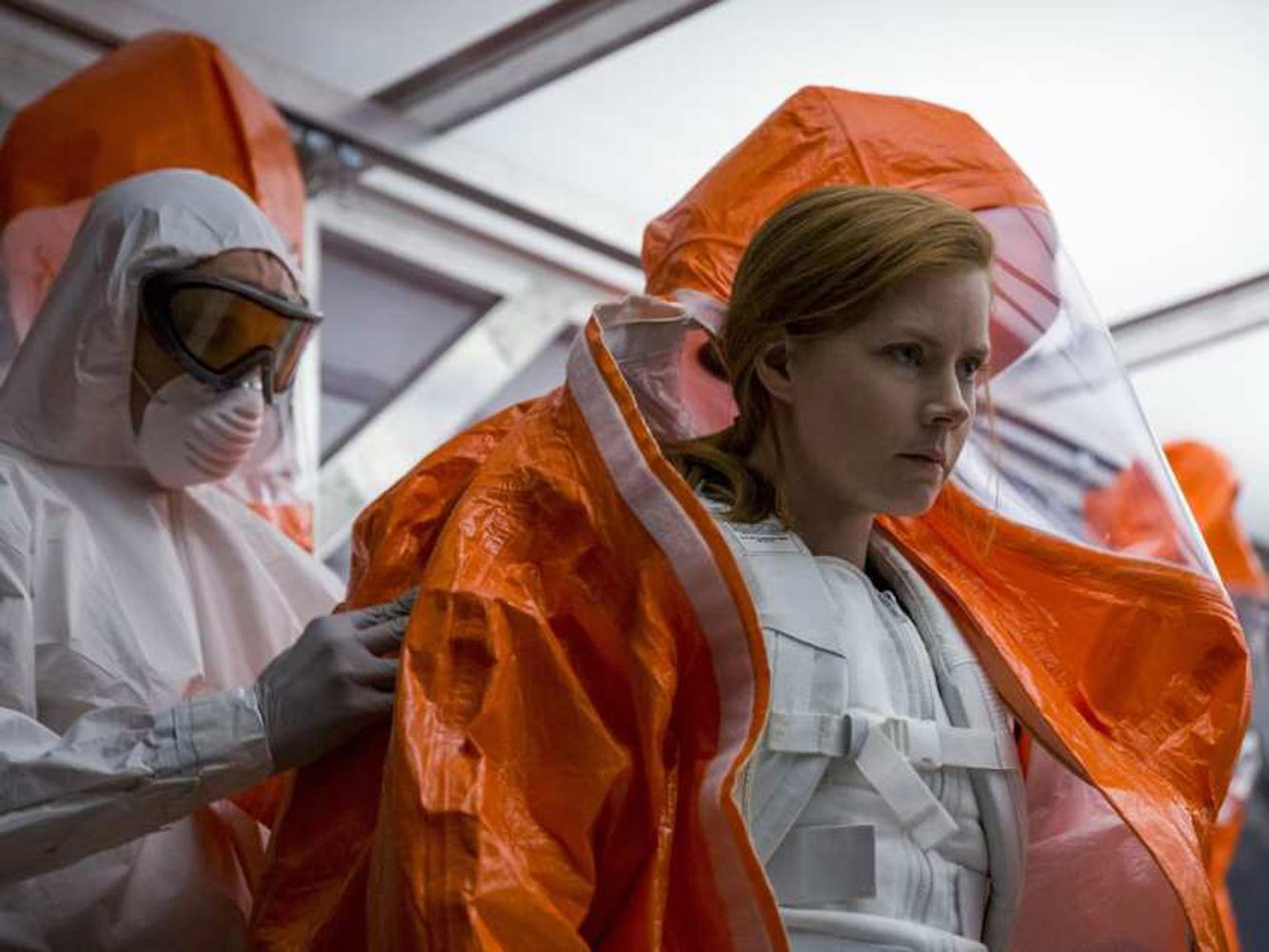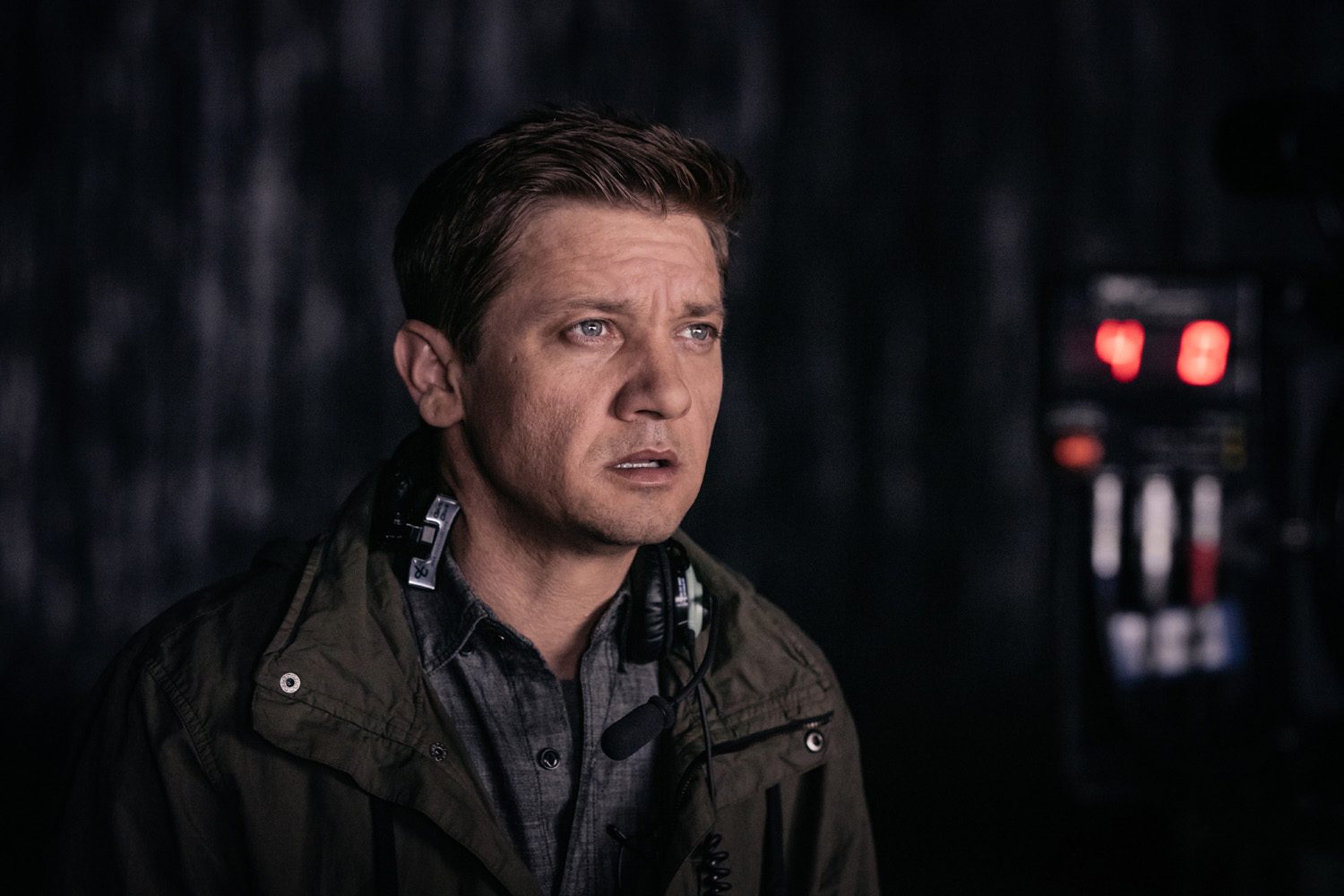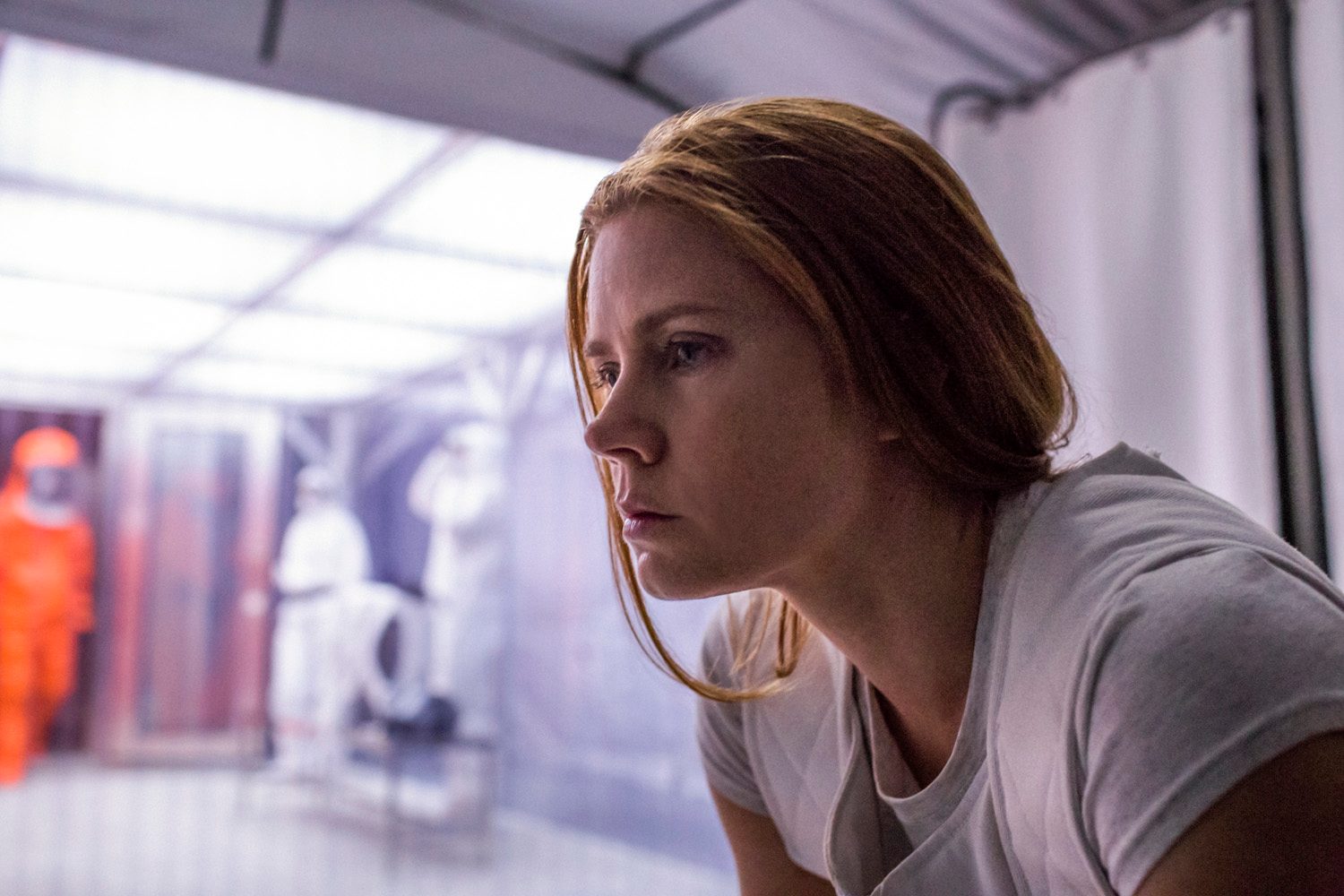SUMMARY
This is AI generated summarization, which may have errors. For context, always refer to the full article.

Louise (Amy Adams) and Ian (Jeremy Renner) first meet on a helicopter ride to the empty field in Montana where an oval spacecraft has ominously decided to hover for whatever reason. Ian tries to talk to her but the sound of the helicopter engine is preventing her from hearing his words. Colonel Weber (Forest Whitaker), the military official who recruited them to figure what has motivated the aliens to suddenly arrive (and the only other passenger in the helicopter), prompts Louise to wear her headpiece.
Linguist Louise and scientist Ian finally communicate.
“Language is the backbone of civilization,” reads Ian from the book Louise wrote. He disagrees. It isn’t language. It’s science.
Resonates emotionally
In a work that astounds with specific scenes that inspire awe and spectacle, it is the seemingly mundane initial conversation between Louise and Ian that first conveys the chaos and beauty of communication.

The film could have conveniently recruited cinematic and poetic license to do away with the banality of having his characters go through machines just to mouth openers but the effect of the cacophony of procedure and sound is quite profound. In a way, the scene subtly carries with it the film’s pressing concerns about this contemporary world where disagreement is the norm. The scene exemplifies the marriage of science and language just so two individuals from distinct disciplines can understand each other amidst the noise.
Denis Villeneuve’s Arrival is a film of breathtaking precision.

Each scene, whether it is of the characters simply committing to their professions or of the mollusk-like extraterrestrials producing symbols out of their limber limbs, provokes weighty conversation. The film borrows genre conventions and shifts them to define two worlds on its own terms. One which exists within Louise’s life and the other, the turbulent one she lives in. The film is both intimate and vast. Its scope is immense, yet despite such breadth, it also resonates emotionally.
Hope and imperfect humans
Arrival is an arrestingly handsome film. Each frame is composed elegantly, with an attention to shapes and structures, breathtakingly exact. Sound also plays an essential role, giving the picture an uncanny atmosphere and enunciating the tension borne out of imagination instead of artificial action.

Villeneuve allows Louise to occupy the entire picture. The character pervades the film’s mood.
She is first introduced as a woman in the process of going through a loss, with the arrival of the aliens providing her the chance to be preoccupied by work and the possibility of a romantic connection. She is at first awkward within the military operation where her unique expertise is the only reason why she is around, but her persistence permeates her mostly male workplace. Her hopefulness is the soul of Arrival, and her imperfect humanity is the source of its indelible aches.
Adams is astounding here. She portrays Louise with remarkable clarity, allowing the character to exude both the strengths and vulnerabilities that make her empathetic. She grants Arrival its palpable heart.
Language and miscommunication

Arrival shows the world on the cusp of apocalypse, not from a physical invasion that is but a product of collective intolerance to the unknown and to the unintelligible.
It depicts a world brimming with jarring dialects, with governments whose motivations are never aligned, with men and women whose disciplines and protocols urge them to disagreement. While language may not be the backbone of civilization, miscommunication may certainly be its demise and humanity’s ability to transcend differences, its chance at salvation. – Rappler.com
 Francis Joseph Cruz litigates for a living and writes about cinema for fun. The first Filipino movie he saw in the theaters was Carlo J. Caparas’ ‘Tirad Pass.’ Since then, he’s been on a mission to find better memories with Philippine cinema.
Francis Joseph Cruz litigates for a living and writes about cinema for fun. The first Filipino movie he saw in the theaters was Carlo J. Caparas’ ‘Tirad Pass.’ Since then, he’s been on a mission to find better memories with Philippine cinema.
Add a comment
How does this make you feel?
There are no comments yet. Add your comment to start the conversation.